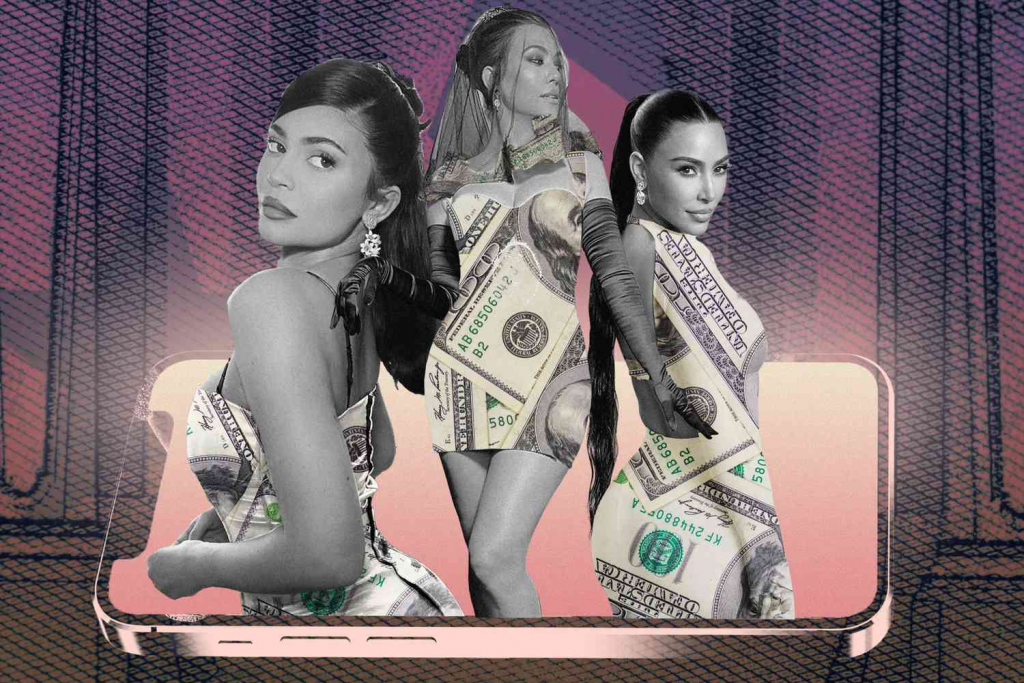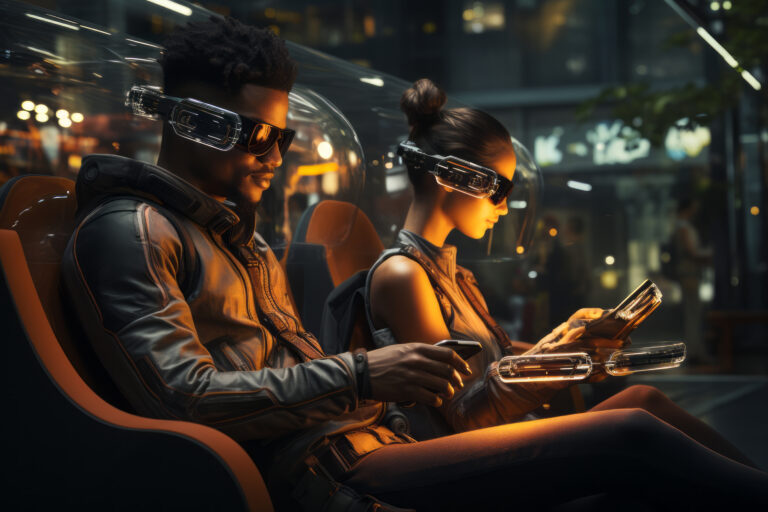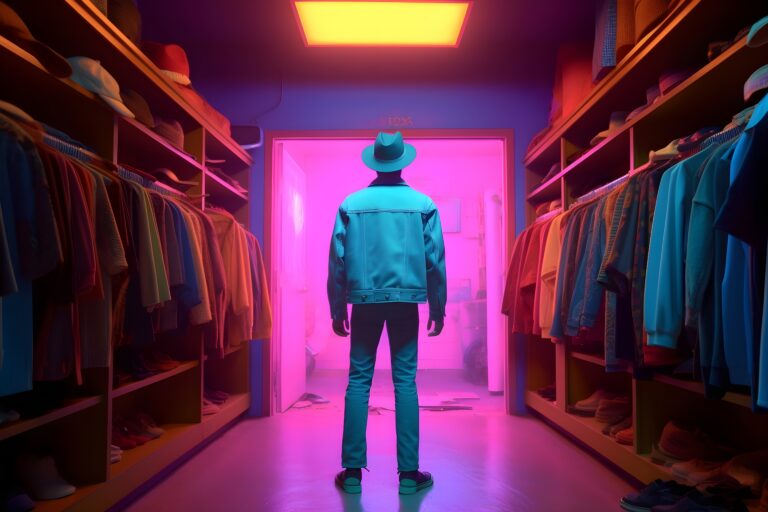Why Celebrities Are Launching Their Own Luxury Brands: A Comprehensive Analysis of the Trend in Celebrity Entrepreneurship
In recent years, an increasing number of celebrities have transitioned from being mere endorsers of luxury brands to creators of their own. From Rihanna’s Fenty Beauty to Kanye West’s Yeezy and the Kardashian-Jenner family’s multiple ventures, the trend of celebrity-owned luxury brands has become a defining feature of modern celebrity culture. This shift raises the question: Why are so many celebrities attempting to create their own luxury brands?
This blog will explore the factors driving celebrities to launch luxury brands, the business strategies behind these ventures, and the cultural impact of celebrity entrepreneurs in the luxury space. We will also analyze how these brands have disrupted traditional luxury markets and what role social media and digital influence play in their success.
I. The Celebrity Brand Landscape: From Endorsement to Ownership
Traditionally, celebrities were associated with luxury brands through endorsement deals. Luxury houses like Chanel, Louis Vuitton, and Dior often collaborated with actors, musicians, and athletes to advertise their products. However, in recent years, there has been a notable shift from simple endorsements to ownership. Celebrities have realized that they can leverage their influence and fanbase to create their own luxury brands and capture a more significant portion of the revenue.

1. The Power of Personal Branding
Celebrities today are not just famous personalities; they are brands in themselves. They embody specific values, aesthetics, and lifestyles that resonate with their followers. By launching their own luxury brands, celebrities can translate their personal brand into a commercial venture. This move provides them with creative control, allowing them to design products that align with their image and appeal directly to their fanbase.
- Example: Rihanna’s Fenty Beauty and Fenty Fashion are prime examples of how a celebrity’s personal brand can be extended into the luxury market. Rihanna’s focus on diversity and inclusivity made her beauty brand an instant success, disrupting traditional beauty norms.
- Reference: “Celebrity Influence in the Luxury Market: A Study of Personal Branding and Product Ownership,” Journal of Brand Management, 2021.
2. Financial Incentives and Wealth Building
Another critical reason why celebrities are launching their own luxury brands is financial. Instead of receiving a one-time payment or a percentage of sales through an endorsement deal, owning a luxury brand allows celebrities to earn substantial profits. The revenue streams from product sales, collaborations, and licensing agreements far outweigh those from traditional endorsement deals.
- Example: Kylie Jenner’s Kylie Cosmetics catapulted her to billionaire status, illustrating the financial potential of owning a beauty brand. Her majority stake in the company, which she later sold to Coty Inc., significantly increased her wealth.
- Reference: “From Endorsement to Ownership: The Rise of Celebrity-Owned Luxury Brands,” Business of Fashion Review, 2020.
II. Social Media and the Democratization of Influence
Social media platforms like Instagram, Twitter, and TikTok have drastically altered how celebrities interact with their audience. These platforms allow celebrities to market their brands directly to their followers, bypassing traditional retail models and advertising channels. The digital age has democratized luxury, allowing celebrities to create and market luxury brands without the need for traditional gatekeepers like high-end fashion houses or department stores.
1. Direct-to-Consumer (D2C) Business Model
The Direct-to-Consumer (D2C) model is one of the primary factors driving the success of celebrity-owned luxury brands. Through social media, celebrities can engage with their audience directly, promoting their products without intermediaries. This model allows for better profit margins, faster feedback, and more control over brand messaging.
- Example: Kim Kardashian’s Skims shapewear brand operates predominantly through a D2C model. By using her social media platforms to promote Skims, Kardashian can directly target her vast audience and control the narrative around her brand.
- Reference: “Direct-to-Consumer Marketing and Celebrity Brands: A New Luxury Frontier,” Harvard Business Review, 2021.
2. The Power of Social Media Marketing
Social media platforms provide celebrities with an unprecedented level of marketing power. Celebrities can use their influence to generate hype around product launches, making them must-have items within minutes. Limited-edition products or drops, promoted via Instagram stories or Twitter posts, create a sense of exclusivity and urgency, essential components of luxury branding.
- Example: Kanye West’s Yeezy brand, in collaboration with Adidas, has mastered the art of using social media to generate hype around new sneaker releases. Yeezy products often sell out within minutes of being launched, largely due to the social media buzz generated by West’s promotional tactics.
- Reference: “The Role of Social Media in Building Luxury Brands: Insights from the Yeezy Phenomenon,” Journal of Digital Marketing, 2020.
III. Celebrity Credibility in the Luxury Market
One of the reasons celebrities have been so successful in launching their luxury brands is that they bring inherent credibility to their ventures. Celebrities, particularly those known for their fashion or beauty sense, are viewed as tastemakers. Their opinions are often trusted by consumers, making their luxury products more appealing.
1. Authenticity and Relatability
Today’s consumers, particularly millennials and Gen Z, prioritize authenticity. They are more likely to buy products from celebrities who are perceived as genuine and relatable. Many celebrities emphasize their personal involvement in the creation of their luxury products, which enhances their brand’s authenticity.
- Example: Selena Gomez’s Rare Beauty brand is marketed as an extension of her personal values, focusing on self-acceptance and mental health. Gomez’s authenticity and relatability have resonated with consumers, making her brand successful in a competitive market.
- Reference: “Authenticity in Celebrity Branding: How Personal Values Drive Luxury Brand Success,” Journal of Consumer Behavior, 2021.
2. Expertise and Innovation
Some celebrities have a long-standing association with specific industries, giving them credibility as experts. For instance, musicians who have spent years in the studio may launch headphone or speaker lines, while actors known for their red-carpet fashion may create clothing or accessory brands. This expertise allows them to introduce innovative products that stand out in the crowded luxury market.
- Example: Pharrell Williams, a well-known music producer and artist, launched Humanrace, a skincare brand that combines his passion for wellness and sustainability with his expertise in creativity. His innovative approach to product formulation has helped the brand gain credibility and success in the luxury skincare market.
- Reference: “Celebrity Expertise and Luxury Brand Innovation: A Case Study of Humanrace,” Fashion and Beauty Review, 2022.
IV. The Impact of Celebrity-Owned Luxury Brands on Traditional Luxury Markets
The rise of celebrity-owned luxury brands has disrupted traditional luxury markets, forcing established brands to rethink their strategies. Celebrity brands are appealing to younger consumers who may not be as loyal to traditional luxury houses. Additionally, celebrity brands often focus on inclusivity and accessibility, challenging the exclusivity traditionally associated with luxury products.
1. Inclusivity and Diversity
Many celebrity-owned luxury brands emphasize inclusivity and diversity, a stark contrast to the historically exclusive nature of traditional luxury brands. These brands cater to a broader range of skin tones, body types, and identities, making luxury products more accessible to diverse audiences.
- Example: Rihanna’s Fenty Beauty was revolutionary in its inclusive approach to beauty, offering 40 shades of foundation from the outset. This move forced other beauty brands, including traditional luxury houses, to expand their shade ranges to remain competitive.
- Reference: “The Inclusivity Revolution: How Celebrity Brands Are Shaping the Future of Luxury,” Journal of Luxury Brand Studies, 2021.
2. Challenging Traditional Luxury Norms
Celebrity brands often challenge the traditional norms of luxury by offering high-quality products at relatively affordable price points. This strategy appeals to younger consumers, who are more price-sensitive but still desire luxury experiences. Additionally, celebrity brands are known for pushing the boundaries of design and aesthetics, which helps them stand out in a saturated market.
- Example: Virgil Abloh’s Off-White brand, known for its streetwear-inspired luxury designs, has blurred the line between high fashion and street culture. Abloh’s influence has forced traditional luxury brands to embrace more contemporary, youth-oriented designs.
- Reference: “The New Luxury: How Streetwear and Celebrity Brands Are Redefining High Fashion,” Fashion and Culture Journal, 2020.
V. The Long-Term Viability of Celebrity-Owned Luxury Brands
While many celebrity-owned luxury brands have achieved significant success, the question remains whether they have long-term viability. Several factors will influence the sustainability of these brands in the competitive luxury market:
1. Brand Identity and Consistency
For celebrity-owned luxury brands to succeed in the long term, they must establish a clear brand identity that resonates with consumers beyond the celebrity’s fame. Brands that can maintain consistency in their product quality, messaging, and values are more likely to endure.
- Example: Victoria Beckham’s fashion brand has built a reputation for high-quality, minimalist designs. Beckham’s consistent focus on craftsmanship and luxury has helped her brand maintain its position in the fashion industry over the years.
2. Celebrity Involvement
The level of a celebrity’s involvement in their brand can also impact its long-term success. Brands that are genuinely driven by the celebrity, rather than just using their name for marketing purposes, tend to fare better. Consumers can often tell when a celebrity is authentically involved in the creative process, which enhances the brand’s credibility.
- Reference: “Celebrity-Driven Brands: The Importance of Authentic Involvement,” Branding and Marketing Studies, 2020.
Conclusion
The trend of celebrities launching their own luxury brands is a reflection of the evolving dynamics
of fame, entrepreneurship, and consumer culture. As celebrities continue to leverage their influence and personal brands to create luxury products, they are not only reshaping the luxury market but also redefining what it means to be a celebrity entrepreneur in the digital age. Through authenticity, innovation, and a keen understanding of their audience, celebrities are creating successful brands that are both culturally relevant and financially lucrative.
References
- “Celebrity Influence in the Luxury Market: A Study of Personal Branding and Product Ownership,” Journal of Brand Management, 2021.
- “From Endorsement to Ownership: The Rise of Celebrity-Owned Luxury Brands,” Business of Fashion Review, 2020.
- “Direct-to-Consumer Marketing and Celebrity Brands: A New Luxury Frontier,” Harvard Business Review, 2021.
- “The Role of Social Media in Building Luxury Brands: Insights from the Yeezy Phenomenon,” Journal of Digital Marketing, 2020.
- “Authenticity in Celebrity Branding: How Personal Values Drive Luxury Brand Success,” Journal of Consumer Behavior, 2021.
- “The Inclusivity Revolution: How Celebrity Brands Are Shaping the Future of Luxury,” Journal of Luxury Brand Studies, 2021.
- “Celebrity Expertise and Luxury Brand Innovation: A Case Study of Humanrace,” Fashion and Beauty Review, 2022.






